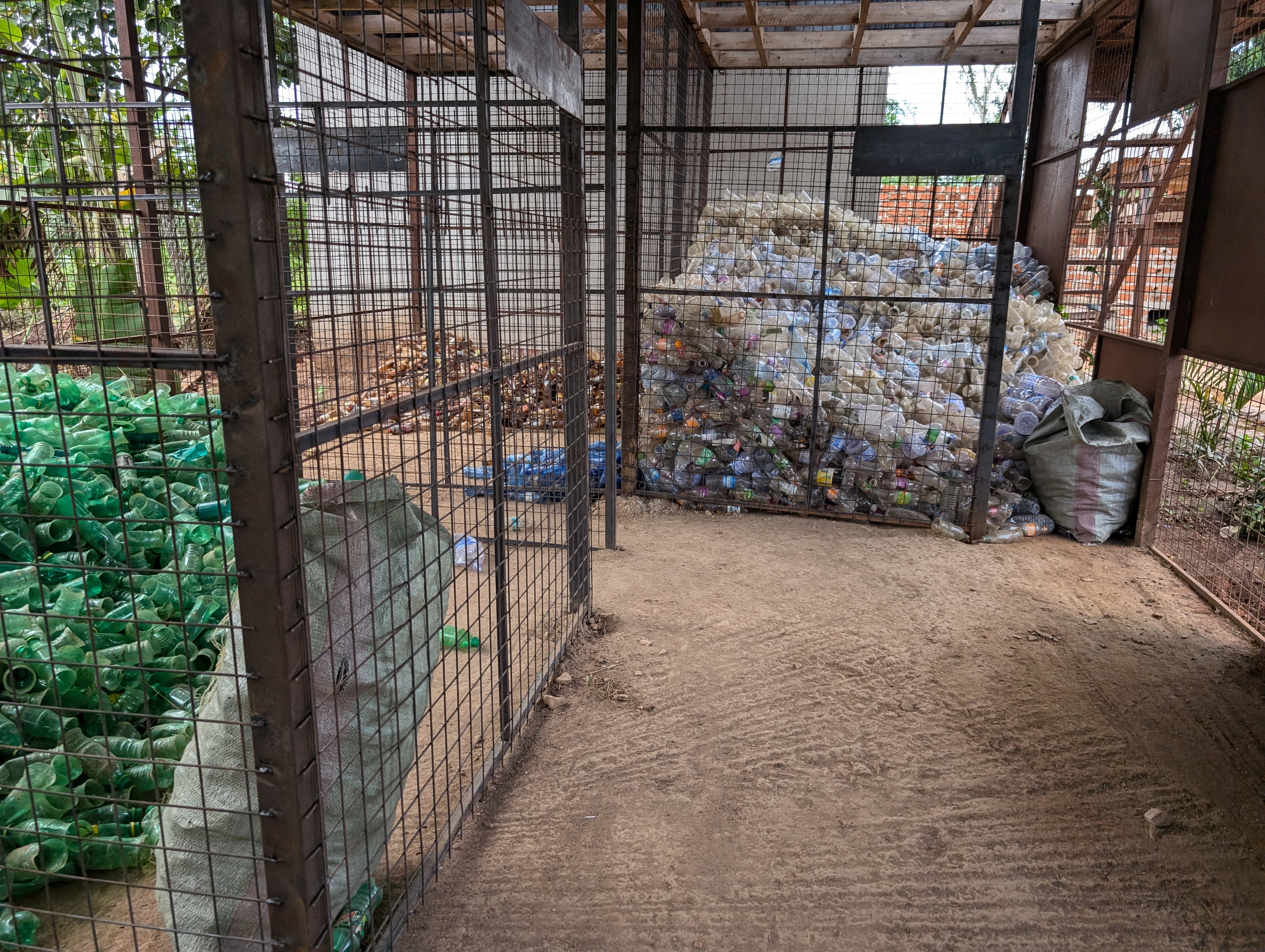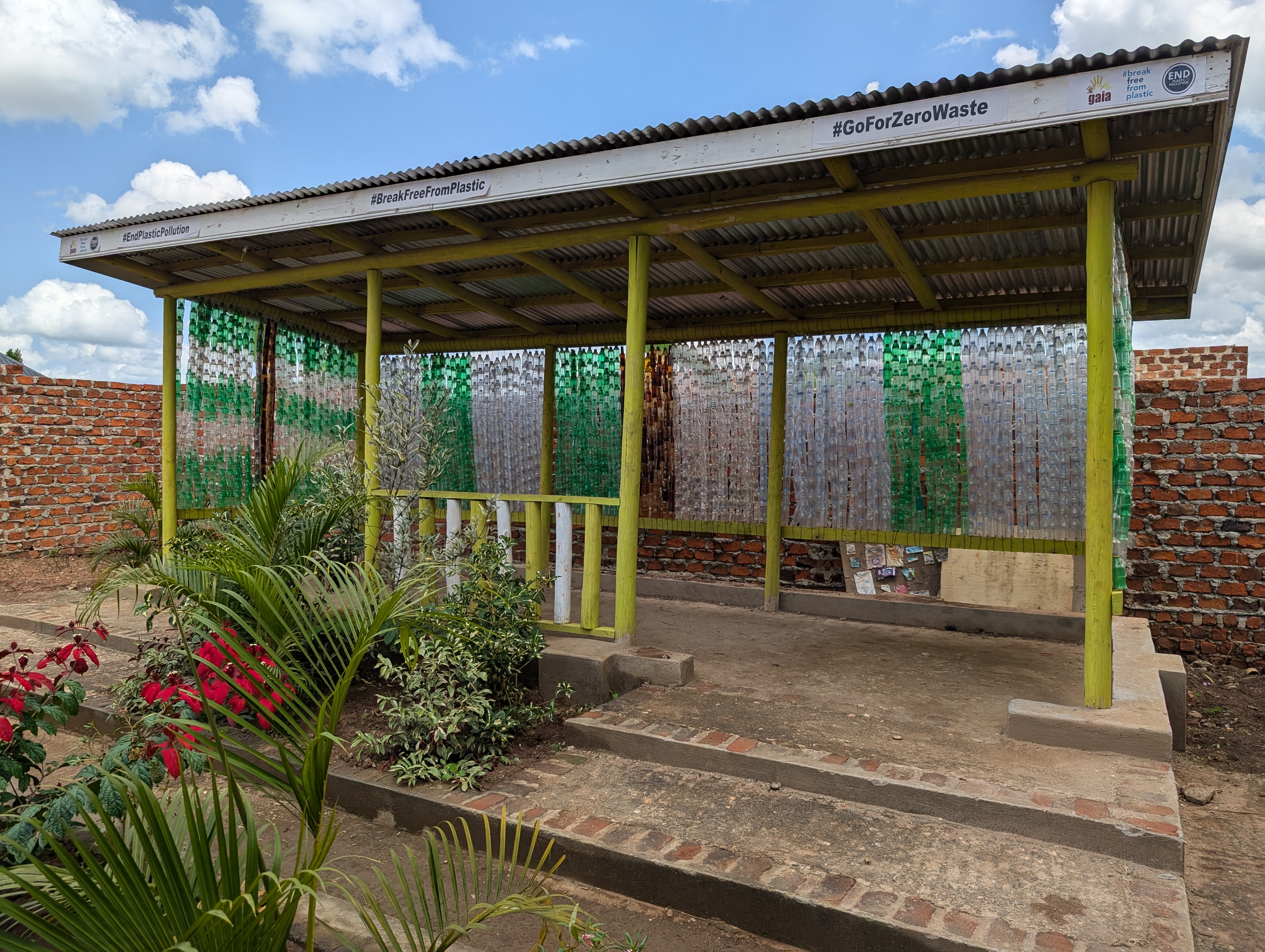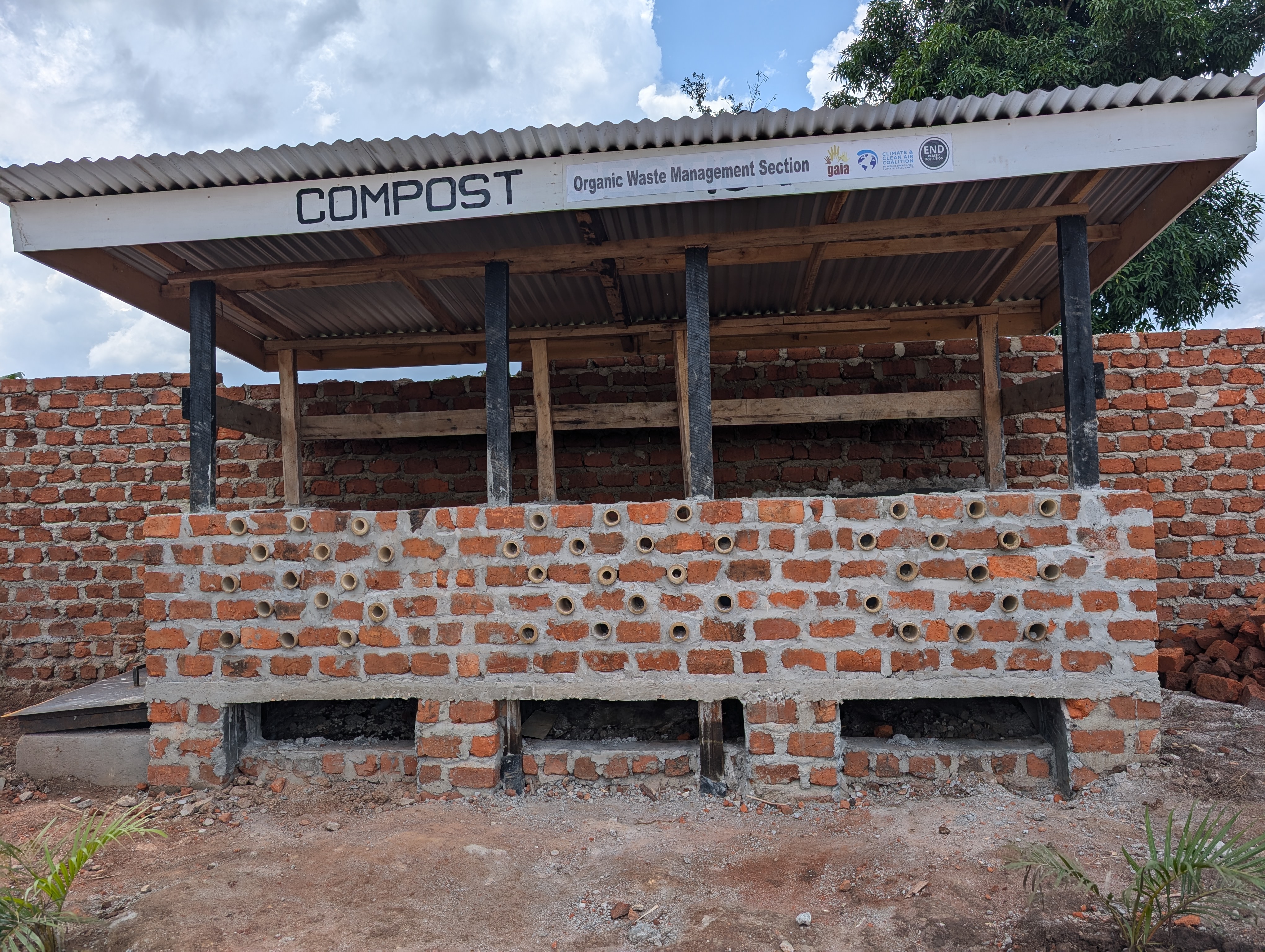About The Kollekt Village | Project Kollekt
An initiative of End Plastic Pollution - Uganda.
Location: The Kollekt Village, Masuulita Town, Masuulita Subcounty, Wakiso District - Uganda.
Contact Email: endplasticpollutionug@gmail.com
Phone Contact: +256774725030 for WhatsApp and Calls.
About Project Kollekt.
Through the Project Kollekt initiative, End Plastic Pollution - Uganda in partnership with the Global Alliance for Incinerator Alternatives and Break Free From Plastic has embarked on constructing a Material Recovery Facility at its Kollekt Village in Masuulita Town, Wakiso District as a center to demonstrate, promote and mainstream its zero waste model implementation in Local communities.
End Plastic Pollution's Material Recovery Facility has been developed with sections including:
- A plastic waste handling demonstration space with chambers separating plastic waste by types and content.
- A plastic waste recovery program involving collection, sorting and storage of materials.
- A space provided for local waste pickers to involve in the zero waste model implementation. This is also home for meeting, training, and sensitization of waste pickers so as to support and empower them to organize.
- A space for organic waste management with compositing chambers.
- The space provides for onsite projects including; Compositing, Black Soldier Flies farming, gardening / vertical farming demonstration and a program for small holder farmers to learn about compositing, organic farming and making organic fertilizers.

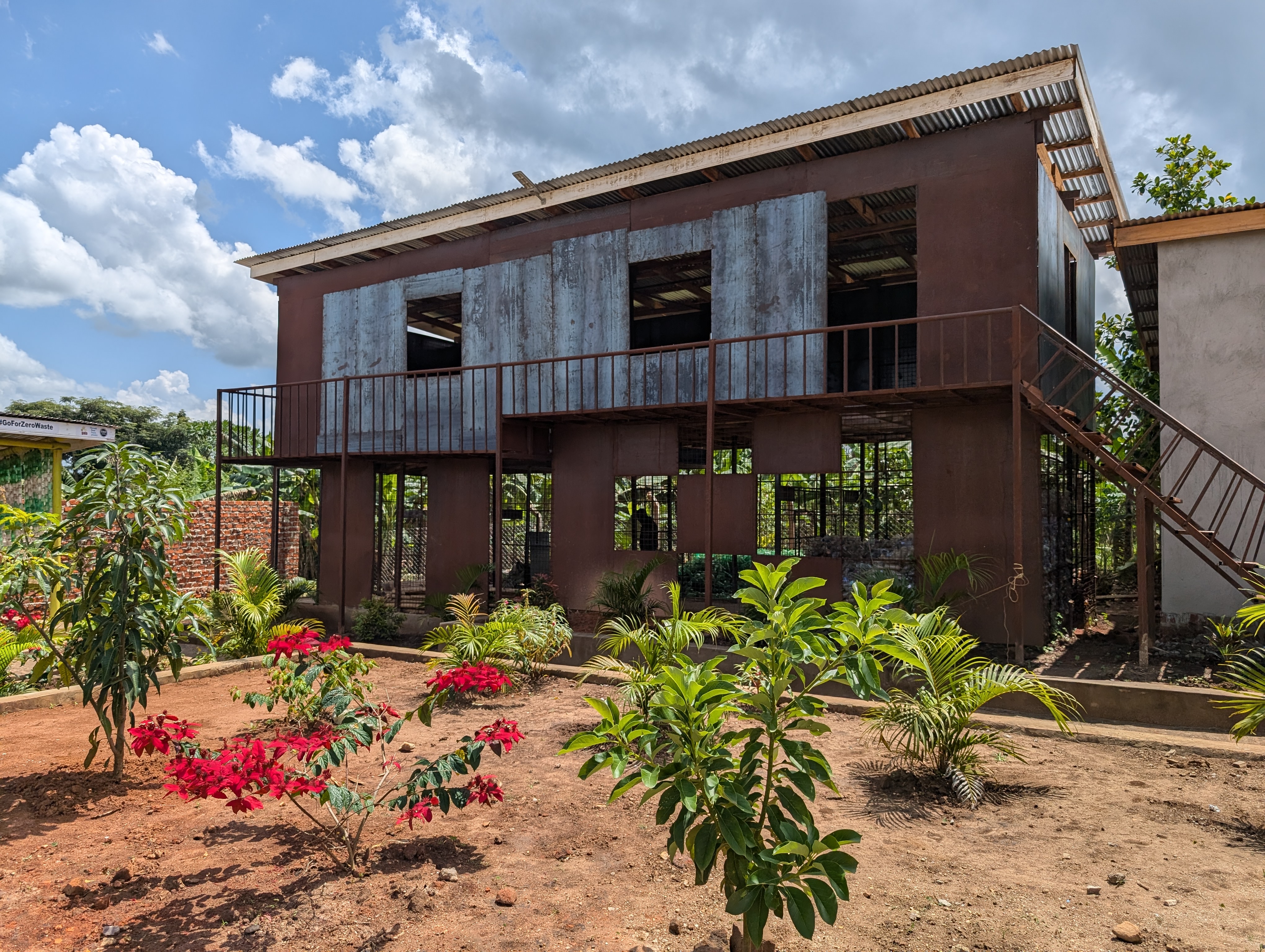
In addition to the Material Recovery Facility, the Kollekt Village features a space for:
- Community gathering, meetings and Training center.
- A space has been provided to establish a reuse and refill shop for locals, youth and women groups as well as local artisans to showcase their materials.
- A library, resources and learning center to be stocked with reading materials, educational materials, Research works on different environmental issues and materials on zero waste.
Why the waste sector.
The waste sector offers a prime opportunity for countries like Uganda to take action that can protect the environment, reduce polluted waste, reduce emissions, strengthen climate resilience systems, provide substantial health and unlock economic benefits. With the zero waste approach, local communities are put at the center of action to address the impact of poor waste management. The zero waste policy is not about stopping the waste coming into the community only, but also about building up local communities and creating jobs that can enable them to thrive.
The Impact / the Solution.
Through the approach known as zero waste communities can reduce flooding, deter disease transmission improve soil health, and deliver economic opportunities. 70% of global greenhouse emissions come from the materials economy. In national inventories these emissions are tallied transportation, and energy sector as well as the waste sector. Yet curbing waste generation and implementation better waste management avoids emissions throughout the lifecycle of material goods - from extraction to end of life.
Therefore the mitigation potential of waste management sector is largely underestimated.
Zero waste systems have been proved versatile strategies that aim to continually reduce waste through - source reduction, separate collection, compositing and recycling.
There will be increased awareness and sensitization and education initiatives to equip youth, waste pickers and local leaders with practical knowledge to implement and develop zero waste models for their communities.
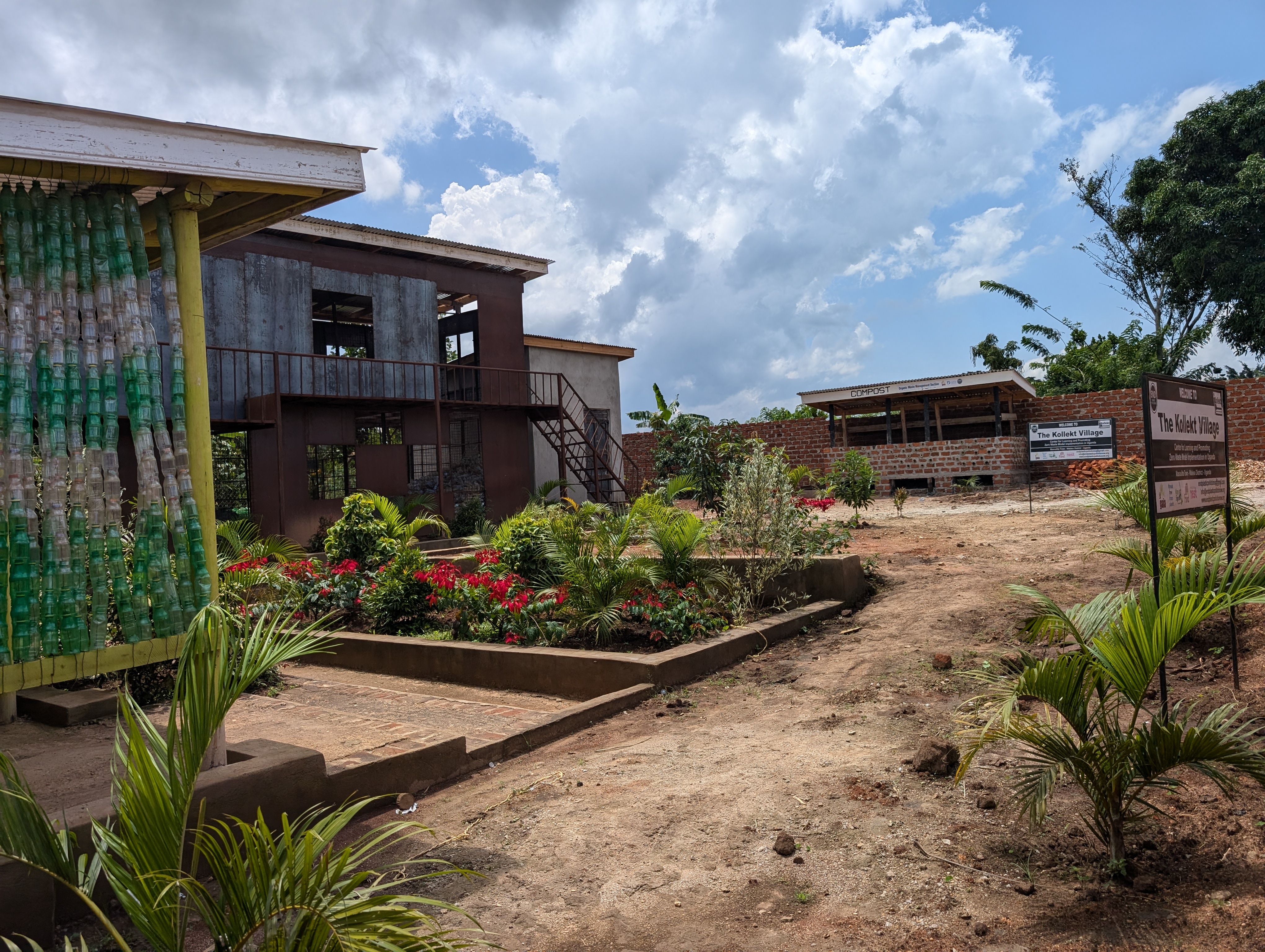

- Climate Change.
The project seeks to address the issue of poor solid waste management practices which was identified by Uganda government as one of the lead drivers of climate change vulnerability.
As the climate crisis deepens urgent action on all fronts is required to both eliminate greenhouse gas emissions and adapt to a rapidly changing climate.
The climate crisis continues to affect many communities and Uganda is no exception. Just like many other countries, Uganda is experiencing climate changes coming with increased temperatures and occurrence of more intense unpredictable rainy seasons leading to flooding, economic activity disruptions, food insecurity and an increased cost of urban management.
Therefore without urgent practical solutions, the city will continue to be exposed to severe climate change shocks and stresses which impacts on its functioning and livelihoods of its residents, more so the vulnerable urban poor.
Why our intervention is crucial for combating climate change.
1. For Climate Mitigation.
Zero waste systems contribute to greenhouse gas emissions reductions in 3 ways; source reduction, separation, separation collection and proper management / recovery of organic waste to avoid landfill methane emissions.
2. For Climate Adaptation.
Zero waste systems help cities build resilience against the increasingly frequent extreme weather events and health hazards brought by climate change.
Poor waste collection and management are among the factors that leave cities particularly exposed to climate impacts.
With zero waste systems, cities like Kampala, can become more resilient by mitigating floods, reducing disease transmission, and improving soil, water and air quality.
Follow us on: X Platform (Twitter): @Project_Kollekt
Location: The Kollekt Village, Masuulita Town, Masuulita Subcounty, Wakiso District - Uganda.
Contact Email: endplasticpollutionug@gmail.com
Phone Contact: +256774725030 for WhatsApp and Calls.


